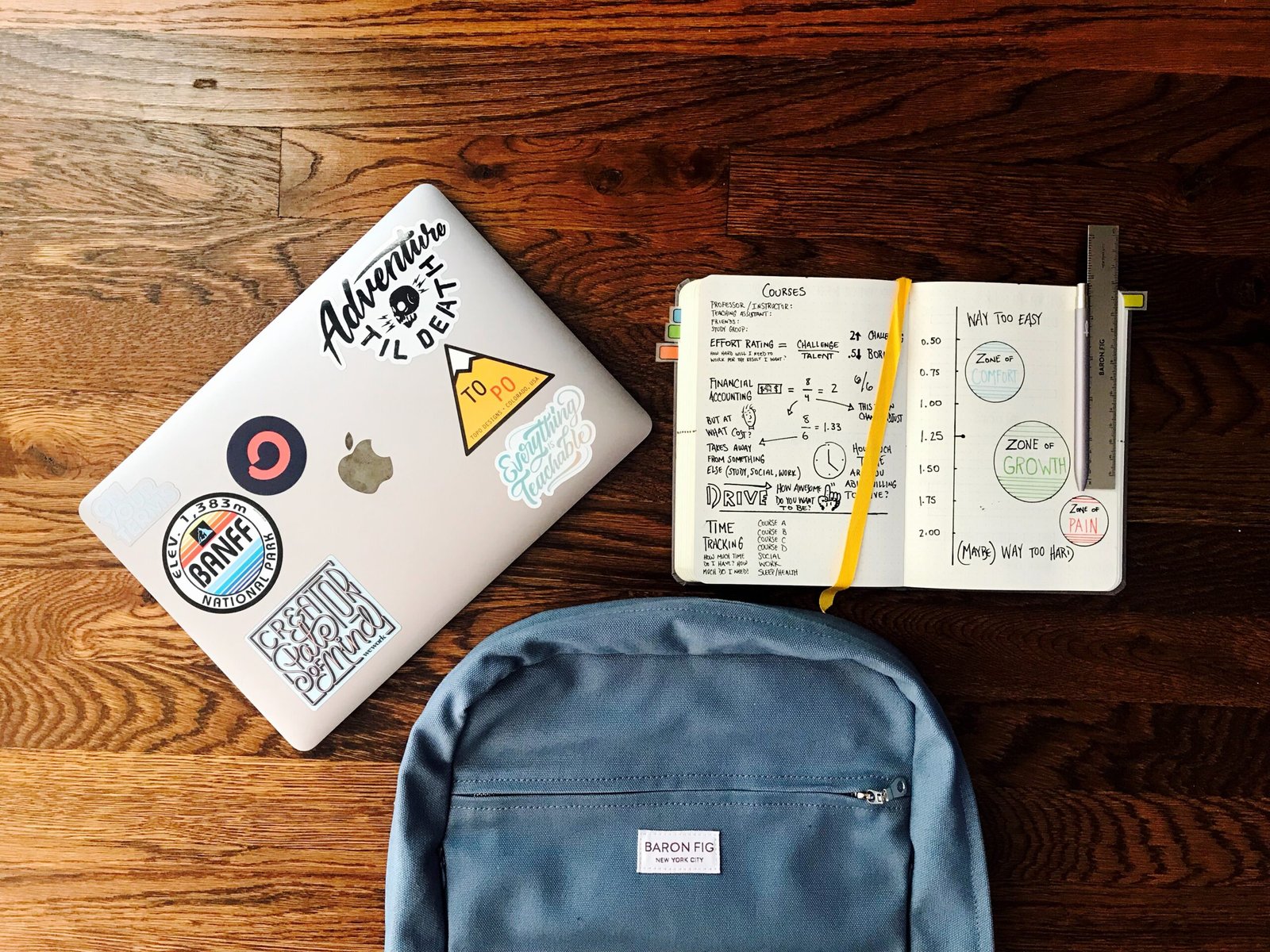To study abroad successfully, the most important step comes before the journey even begins: preparation.
Whether you’re heading off for a semester or an entire degree, knowing how to prepare for studying abroad can make the difference between a stressful experience and an exciting new chapter of your life.
Study abroad preparation involves more than just buying a ticket and packing a suitcase. From understanding visa requirements and managing your budget to adjusting emotionally and culturally, every step you take beforehand matters. That’s why having a clear, organized pre-departure checklist is essential.
In this article, we’ll walk you through the most important study abroad essentials—the practical steps and smart decisions you need to make before boarding the plane. Whether you’re still choosing your program or already accepted, this guide will help you feel confident, prepared, and ready to take on your global adventure.
Let’s make your study abroad experience smoother—starting with preparation done right.
1. Research and Decision-Making
Before you even begin the paperwork, one of the most crucial steps to prepare for studying abroad is doing your research. This is where your journey really starts—and it sets the tone for everything that follows.
Choose the Right Study Abroad Program
Not all study abroad programs are created equal. Start by identifying your academic goals—do you want to earn a full degree, spend a semester abroad, or join a summer course or internship program?
Think about what you want from this experience:
Are you looking for academic prestige?
Do you want hands-on experience or cultural immersion?
Are you hoping to improve your language skills?
Make a list of your personal and academic priorities and compare programs accordingly. Use filters like course offerings, credit transfer options, language of instruction, and university rankings to narrow down your options. These are part of your essential study abroad preparation.
Once you’ve outlined your academic path, it’s time to explore study destinations that align with your goals. Factors to consider include:
Language: Are courses taught in English or the local language?
Cost of living and tuition: Does the country fit your financial plan?
Visa policies: Are student visa requirements flexible and manageable?
Post-graduation opportunities: Can you work during or after your studies?
Choosing the Best Country to Study In
Once you’ve outlined your academic path, it’s time to explore study destinations that align with your goals. Factors to consider include:
Language: Are courses taught in English or the local language?
Cost of living and tuition: Does the country fit your financial plan?
Visa policies: Are student visa requirements flexible and manageable?
Post-graduation opportunities: Can you work during or after your studies?
Remember, the “best country to study” depends on your field of study, budget, language preferences, and lifestyle expectations. Use official university websites, student reviews, and forums to gain insight into daily life and academic experiences in each country.
Check University and Program Requirements
Every university has its own set of admission requirements for international students, so be sure to:
Check deadlines early.
Understand GPA or grade expectations.
Prepare language proficiency tests like IELTS or TOEFL.
Confirm required documentation (transcripts, motivation letter, CV).
Making a checklist at this stage is part of your foundational pre-departure checklist and will save you time and stress later in the process.
2. Financial Planning
Let’s be honest—preparing for studying abroad isn’t just about excitement and adventure. One of the first big questions students ask is:
“Can I actually afford it?”
And that’s a great place to start.
Whether you’re aiming for a full degree abroad or a short-term exchange, understanding the study abroad cost and how to manage your finances is one of the most important parts of your journey.
Estimate the Total Cost of Studying Abroad
To avoid surprises, break down your budget planning into these core categories:
Tuition fees (can vary widely between countries and programs)
Accommodation (dormitory, shared housing, private rental)
Cost of living (food, transport, phone, internet, personal needs)
Travel costs (airfare, local transport)
Visa and health insurance
Books and academic supplies
Use tools like Numbeo or Expatistan to get real-time comparisons between countries and cities.
Explore Scholarships and Financial Aid
Many students are surprised to learn just how many options exist to study abroad with a scholarship.
Here’s where to start:
University-specific scholarships (many institutions offer them to attract international students)
Government scholarships (like Fulbright, Chevening, DAAD, or Erasmus+)
Private organizations and NGOs (search platforms like Scholarships.com or GoAbroad.com)
Merit-based or need-based aid depending on your academic performance or financial background
Make sure you check:
Application deadlines
Required documents (essay, references, financial proof)
Eligibility criteria by country or major
Banking & Money Management Abroad
Even the best financial plan can fail if you don’t know how to manage your money abroad. Before you go:
Research international student bank accounts in your destination country.
Ask your current bank if your card works internationally (and what fees apply).
Download a budgeting app (like Revolut, Wise, or Mint) to keep your spending on track.
Pro Tip: Set up a financial buffer—at least 10-15% more than your estimated budget—to cover emergencies or unexpected costs.
3. Academic and Document Preparation
While the excitement of traveling abroad can be overwhelming, academic and document preparation is what truly sets your journey in motion.
Missing even one key paper can delay your visa or university admission — so let’s get it right from the start!
Gather All Required Documents for Studying Abroad
To prepare for studying abroad properly, you’ll need a complete set of documents ready for both your university and your visa application. The basic study abroad essentials usually include:
A valid passport (check expiration dates—some countries require at least 6 months’ validity after arrival)
University acceptance letter or offer of admission
Academic transcripts and certificates (high school diploma, university transcripts if applicable)
Language proficiency certificates (IELTS, TOEFL, or other required tests)
Statement of Purpose (SOP) or Motivation Letter
Letters of Recommendation (from teachers or employers)
Proof of financial resources (bank statements or sponsorship letters)
Health insurance documentation
Translate and Legalize Your Documents (If Required)
If your academic documents are not in the language required by your university or immigration office (often English, French, or the local language of your destination), official translations will be necessary.
Depending on the country, you may also need:
Notarization (certified by a public notary)
Apostille legalization (for countries under the Hague Apostille Convention)
Embassy attestation (for countries outside of the Apostille agreement)
Each country and institution has its specific rules—so always double-check on the university’s official website or with their international student office.
Register for Required Tests and Certifications
Some universities and countries will expect students to have passed certain exams or meet specific health or qualification requirements before arrival.
Checklist:
Language proficiency tests (IELTS, TOEFL, or local language tests like TestDaF for Germany)
Medical tests or vaccinations (based on destination requirements)
Entrance exams (if needed for your program—e.g., SAT, GRE, GMAT)
Remember: registering for these tests early gives you flexibility to retake them if needed without delaying your application timeline.
Keeping your documents organized, updated, and legally certified is a cornerstone of smooth study abroad preparation.
Think of it as setting the academic foundation for your entire adventure — the stronger the start, the easier the journey.
4. Accommodation and Travel
Once your academic paperwork is in order, it’s time to tackle another major part of your study abroad preparation: where you’ll live and how you’ll get there.
Securing your student accommodation abroad and planning your travel early can save you money, reduce stress, and make your transition to a new country much smoother.
Find and Book Your Accommodation Early
Accommodation options for international students vary depending on the country, city, and even the university itself. Here are the main choices:
University Dormitories:
Often the most affordable and convenient option.
Great for meeting other students and participating in campus life.
May require applying early due to limited spaces.
Private Student Housing:
Specialized accommodations for students, often with modern amenities.
Offers more independence but usually costs more than dormitories.
Shared Apartments or Homestays:
Renting a room in a shared flat or living with a local family.
A good option for cultural immersion and language practice.
When choosing where to stay, think about:
Distance from campus and access to public transport.
Safety of the neighborhood.
Cost of rent, utilities, and possible extra fees (internet, maintenance).
Book Your Flight in Advance
Booking your flight is a major milestone in your pre-departure checklist.
Here’s how to make it smooth:
Look for student flight discounts or special fares offered by travel agencies like STA Travel or StudentUniverse.
Choose flexible tickets when possible, in case visa processing or program dates shift.
Plan to arrive a few days before your orientation or classes start — you’ll need time to settle in and adjust.
Tip: Always check baggage policies — some airlines allow extra luggage for students traveling internationally!
Plan Your Airport Pickup or First Transport
Nothing is worse than landing in a new country, tired after a long flight, and not knowing how to get to your accommodation.
Plan this early:
Some universities offer airport pickup services for international students — register in advance if available.
If not, research taxis, shuttle buses, trains, or rideshare apps available at your arrival airport.
Save your accommodation address and a local emergency contact on your phone — study abroad essentials that can save the day if anything goes wrong.
Final Travel Preparation Checklist:
Book accommodation.
Confirm your flight details.
Arrange airport transfer.
Print and save important documents digitally (passport, visa, acceptance letter, accommodation details).
Notify your university of your arrival plans.
Planning your accommodation and travel is a vital part of preparing for studying abroad.
By handling these steps early, you ensure a smoother arrival, giving you more energy to enjoy your exciting new adventure.
5. Packing Checklist for International Students
Packing for a semester—or even a year—abroad is exciting… but also a bit overwhelming. What do you really need? What can you buy when you arrive? And how do you avoid overpacking?
To make things easier, we’ve put together a smart study abroad packing list that covers all the essentials for international students. Consider this your personal packing roadmap.
Important Documents to Carry
Your documents are the most important items in your bag. Keep them in a secure, waterproof folder or pouch, and take both physical and digital copies.
Checklist:
Passport (with visa)
University acceptance letter
Flight tickets and travel insurance
Health and vaccination records
Financial proof / scholarship documents
Copies of ID photos (for university ID, visa renewal, etc.)
Accommodation confirmation
Pro Tip: Email scanned copies to yourself or save them in a secure cloud folder like Google Drive.
Academic Essentials
You won’t need to carry your entire library—but a few things will help you hit the ground running.
Laptop and charger (plus a universal adapter!)
USB drive or portable hard drive
Notebooks and stationery (or buy locally)
Headphones (for online lectures or study sessions)
Calculator or subject-specific tools (if required)
Clothing & Personal Items
Packing light is key—but pack smart. Base your wardrobe on the local climate and culture.
Consider:
Everyday casual wear
A formal outfit (for events, interviews, presentations)
Activewear and shoes for walking/exercise
Weather-specific gear (raincoat, jacket, gloves, etc.)
Undergarments and socks for 1–2 weeks
Personal toiletries (travel-sized to start)
Tip: Don’t forget items that might be hard to find in your host country (prescription items, certain toiletries, etc.).
Health & Safety
Being far from home means you’ll want a few basic health items within reach.
Basic first aid kit (band-aids, painkillers, etc.)
Any prescription medications (with a copy of the prescription)
Face masks or sanitizer (still handy for travel and flu season)
Glasses/contact lenses + solution
Tech & Travel Accessories
The right tools can make your transition smoother.
Power adapter and voltage converter
Travel pillow, eye mask, earplugs
SIM card or unlocked phone (or buy locally)
Reusable water bottle and eco bag
Local currency (for initial expenses)
Optional Comfort Items
These aren’t must-haves, but they’ll help you feel at home in a new place.
Photos of friends/family
Favorite snacks from home
Cultural items to share (flags, souvenirs, small gifts)
Final Packing Tips:
Use packing cubes or zip bags to stay organized.
Weigh your suitcase before heading to the airport to avoid extra fees.
Keep valuables in your carry-on.
Leave some space—you’ll definitely bring things back!
Packing might feel like a big task, but with the right plan, it becomes one more step in your smart study abroad preparation.
And once you land, you’ll be glad you brought the things that matter most.
6. Cultural and Mental Preparation
Let’s be real—moving to a new country isn’t just about academics, packing, or getting your visa approved.
It’s about stepping into the unknown, adjusting to a new culture, and managing your emotions in an unfamiliar environment.
That’s why mental and cultural preparation is just as important as packing your suitcase.
Understanding Culture Shock
Culture shock while studying abroad is real—and it happens to almost everyone. Even if you’ve traveled before, living in a new culture full-time is a different experience.
You might notice:
Unfamiliar customs or social behaviors
Different attitudes toward time, communication, or personal space
New food, transportation systems, classroom expectations
Moments of homesickness or frustration
Tip: Understanding that these feelings are normal—and temporary—can help you move through them with more confidence.
Mentally Preparing for Change
To mentally prepare for studying abroad, start by shifting your mindset. You don’t need to have everything figured out—just stay curious and open-minded.
Here’s how to build emotional resilience:
Research the local culture before arriving (traditions, dos & don’ts)
Talk to alumni or current students who studied in your host country
Practice independence (managing your own schedule, cooking, budgeting)
Accept that mistakes and awkward moments are part of the growth process
Language and Communication
Even if you’re studying in English, daily life in your host country might involve another language.
Start practicing basic phrases in the local language:
Greetings
Asking for directions
Shopping/transportation terms
Emergency vocabulary
Use language learning apps like Duolingo, Memrise, or HelloTalk before you leave. It boosts confidence, improves interaction with locals, and helps with culture immersion.
Social and Cultural Integration Tips
Join student forums or online communities before arrival.
Attend orientation events to meet other international and local students.
Get involved in cultural clubs, volunteer work, or university events.
Be okay with asking questions and making mistakes—it’s how you learn.
Pro Tip: Keep a small notebook of cultural observations—it helps you stay reflective and aware of your own growth.
Stay Connected to Home—But Not Stuck There
It’s healthy to miss home—but don’t let homesickness keep you from being present in your new environment.
Set up weekly video calls with family or friends
Bring a few comfort items from home (photos, snacks)
Balance time between staying in touch and making new connections
7. Digital and Tech Readiness
In today’s world, preparing for studying abroad isn’t just about packing your bags—it’s also about packing your digital life.
Having the right tools, apps, and tech setup can make your transition smoother, safer, and way more efficient.
Let’s get your digital world travel-ready.
Essential Apps for International Students
Before you board that flight, make sure your phone is loaded with useful apps that will make day-to-day life abroad easier:
For Navigation & Transport:
Public transit apps specific to your destination.
For Communication:
Google Translate (for quick help with language barriers)
For Student Life:
Back Up Everything Before You Leave
Losing your documents or data abroad is one of the fastest ways to cause unnecessary stress.
Before you go, create a digital safety net:
Upload important documents (passport, visa, acceptance letter, ID photos, insurance) to Google Drive, Dropbox, or OneDrive.
Save emergency contacts and important addresses in your notes or cloud.
Back up your laptop or tablet in case of loss or theft.
Enable two-factor authentication on key accounts (email, banking, etc.)
Set Up Your SIM Card & Phone Plan
One of the first things you’ll need upon arrival is a working phone. Depending on your country, you can:
Buy a local SIM card (often the cheapest option)
Use an international eSIM (for compatible devices)
Stick with your home provider’s roaming plan (usually more expensive)
Make sure your phone is unlocked before leaving your home country—this allows you to use SIM cards from other providers freely.
Final Digital Checklist:
Download key apps
Back up important files
Set up cloud access
Check phone unlock status
Buy or research SIM card options
Pack all your tech accessories
Digital readiness is part of your study abroad essentials.
With the right tech in your pocket (and in the cloud), you’ll stay organized, safe, and connected—wherever your journey takes you.
8. Health and Safety
New country, new culture, new experiences… and yes, new health systems and safety routines.
When preparing for studying abroad, it’s crucial to prioritize your health and personal safety—not just for peace of mind, but also to meet university and visa requirements.
Arrange Health Insurance Before You Travel
In most countries, health insurance for international students is mandatory for enrollment and visa approval.
Your options may include:
University-provided plans: Many universities offer student health insurance packages.
Private international insurance: Choose from providers like Allianz, Cigna Global, or IMG for broader global coverage.
Government-sponsored plans: In some countries (e.g., Germany, Sweden), students can access public healthcare with a valid visa.
Check:
What’s covered? (doctor visits, emergencies, prescriptions, mental health)
Is dental or vision included?
Does the insurance meet your visa or university requirements?
Complete Any Required Medical Tests or Vaccinations
Some countries require specific vaccinations or health checks before issuing a student visa or allowing campus entry.
Check your destination’s entry and public health requirements well in advance.
Common requirements include:
Tuberculosis (TB) test
COVID-19 vaccinations
Hepatitis A/B
Measles, mumps, and rubella (MMR)
Carry official health records in English (or translated) and keep both digital and physical copies with you.
Know Your Emergency Resources
Being prepared for an emergency doesn’t mean expecting the worst—it means knowing how to act fast if something happens.
Create your safety plan:
Save emergency contacts: university office, embassy/consulate, local police, emergency hotline.
Identify the nearest hospital or clinic to your accommodation.
Keep a physical and digital copy of your insurance card and ID at all times.
Understand local laws, emergency numbers, and safety protocols.
Prioritize Mental Health and Wellbeing
Adapting to a new environment, language, and culture can be emotionally challenging.
Don’t wait until stress builds up—be proactive.
Ask:
Does your university offer counseling or mental health support?
Are there wellness apps or online therapy services you can use?
How can you create a routine that supports your physical and emotional health?
Health & Safety Essentials Packing List
Prescription medications (plus prescription copies)
Basic first aid kit
Travel-size sanitizers & masks (still useful in many countries)
Insurance documents and ID copies
Mental health resources or emergency contacts
9. Final Week Checklist
You’ve done the research. You’ve packed your bags. Your documents are ready, and your flight is booked. Now it’s the final countdown!
The week before departure is all about double-checking, tying loose ends, and making sure your study abroad preparation is complete.
Use this checklist to stay organized and avoid any last-minute stress.
Travel and Documentation
Make printed copies and digital backups of:
Passport & visa
Flight tickets
Acceptance letter
Accommodation confirmation
Health insurance & vaccination records
Emergency contacts & ID photos
Keep all documents in an easy-to-access travel folder or digital file (Google Drive, Dropbox).
Academic & University Final Steps
Confirm your enrollment status and class schedule
Attend any pre-departure orientations (online or in-person)
Set up your university email and student portal login
Check deadlines for tuition payments or registration
Join student groups or international student chats
Finances & Banking
Notify your bank of international use
Convert some local currency for arrival day expenses
Set up online banking and budgeting apps
Double-check your financial proof for visa/immigration control
Luggage and Packing
Weigh your luggage and check airline baggage allowance
Keep valuables in your carry-on
Pack a change of clothes and essential toiletries in your carry-on (in case of baggage delays)
Bring comfort items for the flight (headphones, snacks, travel pillow)
Home and Life Admin
Make copies of keys or documents for your family
Cancel or pause subscriptions you won’t use abroad
Arrange someone to check mail or manage bills if needed
Say goodbye to friends and family — plan quality time!
Mental Check-In & Confidence Boost
Review your goals and expectations
Talk to someone who’s been through it — get advice and encouragement
Remind yourself: it’s okay to feel nervous. You’re doing something bold and life-changing!
You’re Ready to Go!
With this final week checklist for studying abroad, you’re not just packed—you’re prepared.
Every item you tick off is a step closer to your big adventure.
Now it’s time to board that flight, meet new people, experience new cultures, and write an unforgettable chapter of your life.
Let your study abroad journey begin—with confidence and clarity.
At Goalantis, we’re proud to be part of your journey toward global education.
We wish you a meaningful, successful, and unforgettable study abroad experience.
If you have any questions along the way—or just need a bit of guidance—don’t hesitate to reach out to our team. We’re here to help you every step of the way.
Safe travels, and happy studying!











